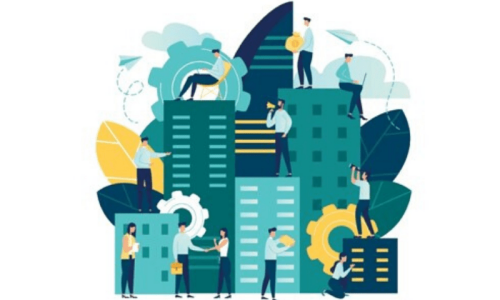THE modern state differs from its earlier predecessors in that it seeks to regulate and control all aspects of the society it lays claim to. Whether it is successfully able to do it or not is a different matter. Recently released results from the country’s digital census in 2023 help visualise some fairly far-reaching transformations taking place in Pakistani society. It is worth going through a couple of these, given how they interact with the state’s attempt to regulate and control different aspects of its citizen’s lives. One such arena is the country’s ongoing struggles with the electricity sector. Decision-makers across multiple regimes since the 1990s opted for a model of private sector-led electricity generation that expanded capacity but produces expensive electricity. The end-result of this model is an energy grid that is singularly reliant on residential consumers staying connected and paying a high tariff.
It is in this context that the state is attempting to regulate the use of solar energy, and especially net-metering connections. As Asha Amirali pointed out in an excellent piece on these very pages it needs high-consuming residential connections to stay on the grid and pay a relatively high tariff. Ultimately, it may be successful in discouraging net-metering in high-income households by changing the buy-back rate or by refusing to give out new connections. But there is an entirely different transformation taking place at lower tiers.
As per the 2023 census, approximately eight per cent of all Pakistani households — nearly three million households comprising 20m people — rely on solar panels as their primary energy source for electricity (lighting etc.). This number is up by about 60pc since the last such measurement through a sample survey in 2021. On its own, the number may not seem very high. But it masks important variations. Solar panel deployment is understandably higher in rural than in urban areas — 11pc of all rural households are reliant on it versus just 3pc of urban ones.
There are other key variations as well. In Punjab, solar reliance is not very high — just under 2pc of all households. But it is considerably higher in KP (13pc), Sindh (13pc), and Balochistan (26pc). Across the provinces, the urban-rural divide is fairly stark, with numbers reaching as high as 34pc in rural Balochistan.
Greater connectivity and educational attainment lead to heightened expectations and aspirations.
This variation captures important aspects of Pakistan’s development trajectory. It highlights the relative success of electricity grid expansion across rural areas in Punjab, but its continued failure in the smaller provinces. It also shows a higher rate of self-sufficiency among lower-income rural segments, who are bypassing the state altogether for reasons that likely include reliability and cost.
Ultimately, this dramatic turn towards solar shows the absence of a key point of interface — the electricity grid — between the state and its citizens. Just between 2017 and 2023, the percentage of rural households across Pakistan relying on grid electricity declined by 6pc.
If citizens cannot receive any electricity supply, let alone a reliable and cost-effective one from the state, they have one less reason to trust it or to see themselves as partners in a larger social contract. Alternatively, expecting deference and fealty from a citizen solely due to geographical incident of birth is unlikely to be successful over the long term. Another key issue of state regulation in recent months is the internet. State institutions are devoting energy to ‘digital terrorism’, which allegedly leads Pakistani youth astray. The logical response, in their view, is an internet-strangulating firewall that slows down the spread of content deemed to be questionable.
It’s worth considering exactly what such views are up against, demographically speaking. Among Pakistanis above the age of 45, ie, the generation currently found in positions of authority, only six out of 100 had a BA degree or above. Among those between 35 and 40, the same stat inches up to about 10 in 100. While new census data showing educational attainment by age group is yet to be made public, enrolment data is available. There are just over 4m students presently enrolled in colleges and universities across Pakistan. This number alone is 50pc of the total number of all graduates (and postgraduates) in the country back in 2017. Further, if we take 20 to 24 as the standard age range of higher education, we would end up with an upper estimate of nearly one in five, or 20pc, with college attainment. In other words, a tripling of university access in the space of two decades.
Combined with mobile internet reaching nearly 90pc of all households, and the sheer size of the youth bulge (76m individuals between 15 and 35), the demographic and social reality of Pakistan is on a planet entirely separate from the one occupied by the state authorities. One can speculate about the political preferences and allegiances of young people and their implications for the country’s ongoing politics. But it is equally important to stress that greater connectivity and educational attainment lead to heightened expectations and aspirations. Such expectations are unlikely to be satiated through the accidental leftovers of a resource pie that decision-makers divide and devour among themselves. They are also unlikely to be quelled through lectures on patriotism delivered from above or from the strangulation of the internet.
Despite its faltering nature, Pakistan’s development trajectory is inducing societal change in its economy, in consumption preferences, and ideas at a fairly rapid pace. The implications of such change are becoming apparent, in the bypassing of state-provided services and the growing anger and frustration of young people across the country. What is left to see is whether state authorities acknowledge a strategy of adaption, or whether they stay committed to one of forcible control.
The writer teaches sociology at Lums.
X: @umairjav
Published in Dawn, August 19th, 2024














































Dear visitor, the comments section is undergoing an overhaul and will return soon.